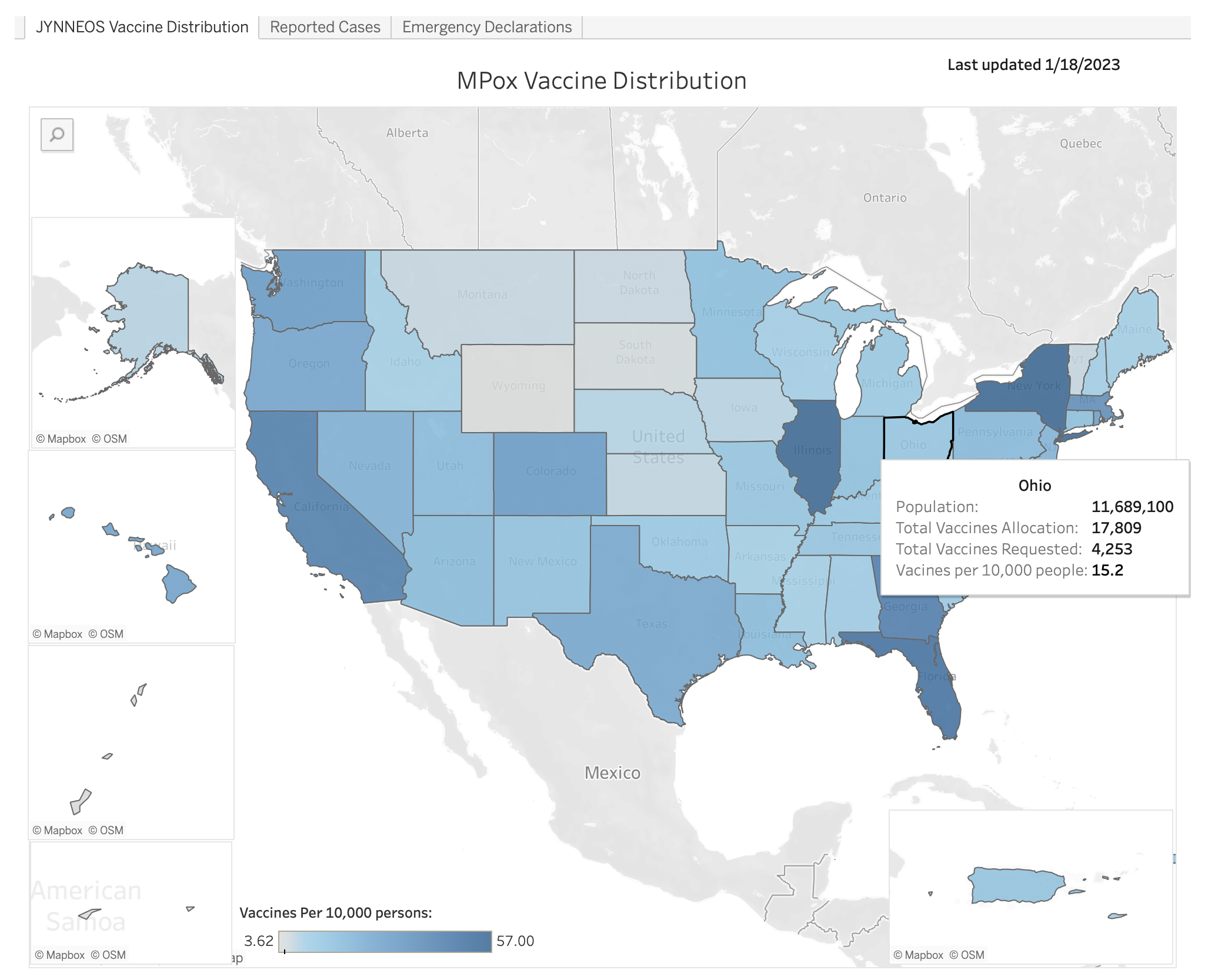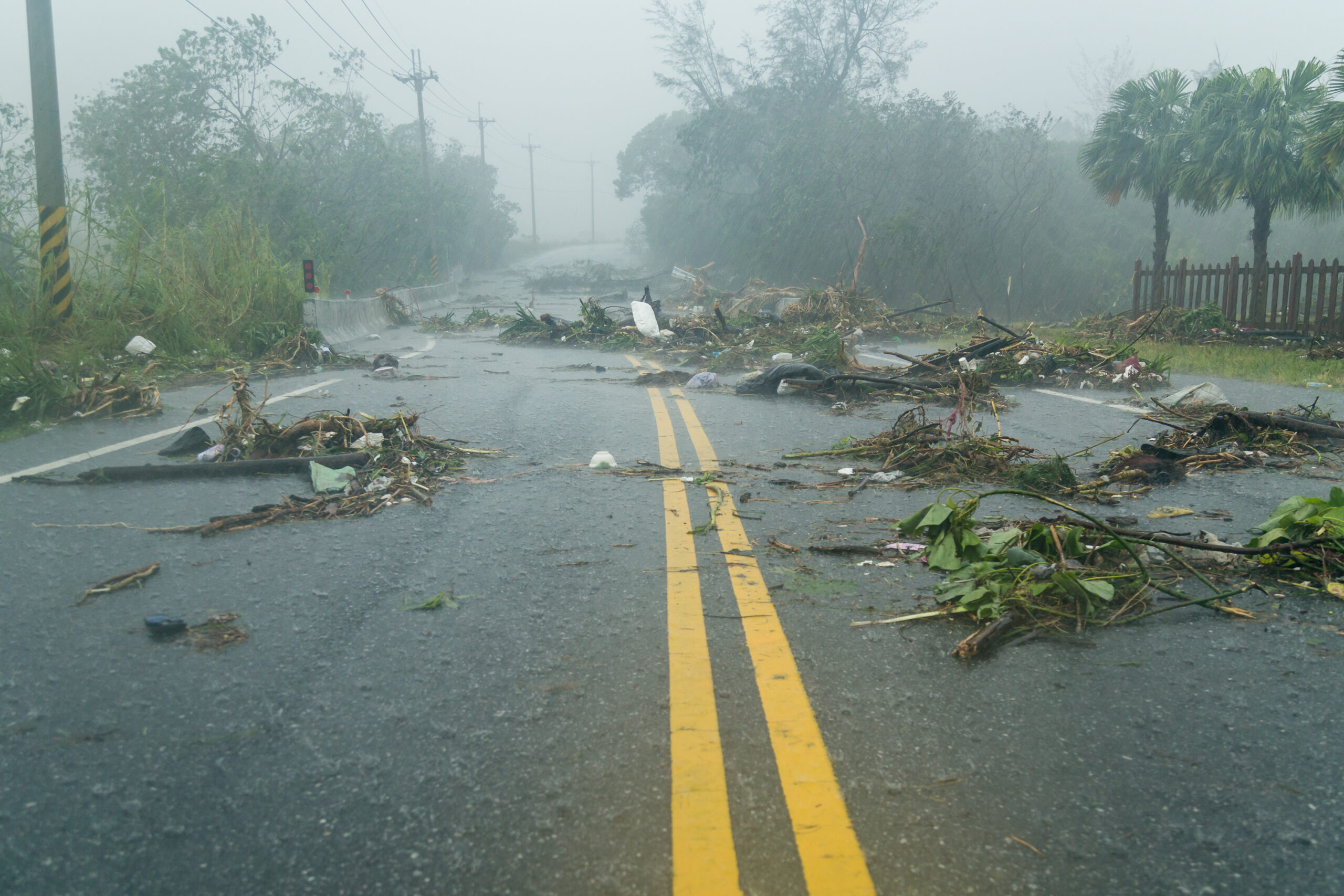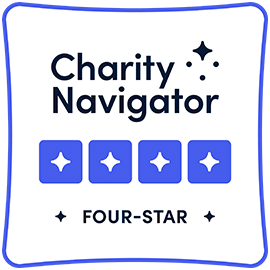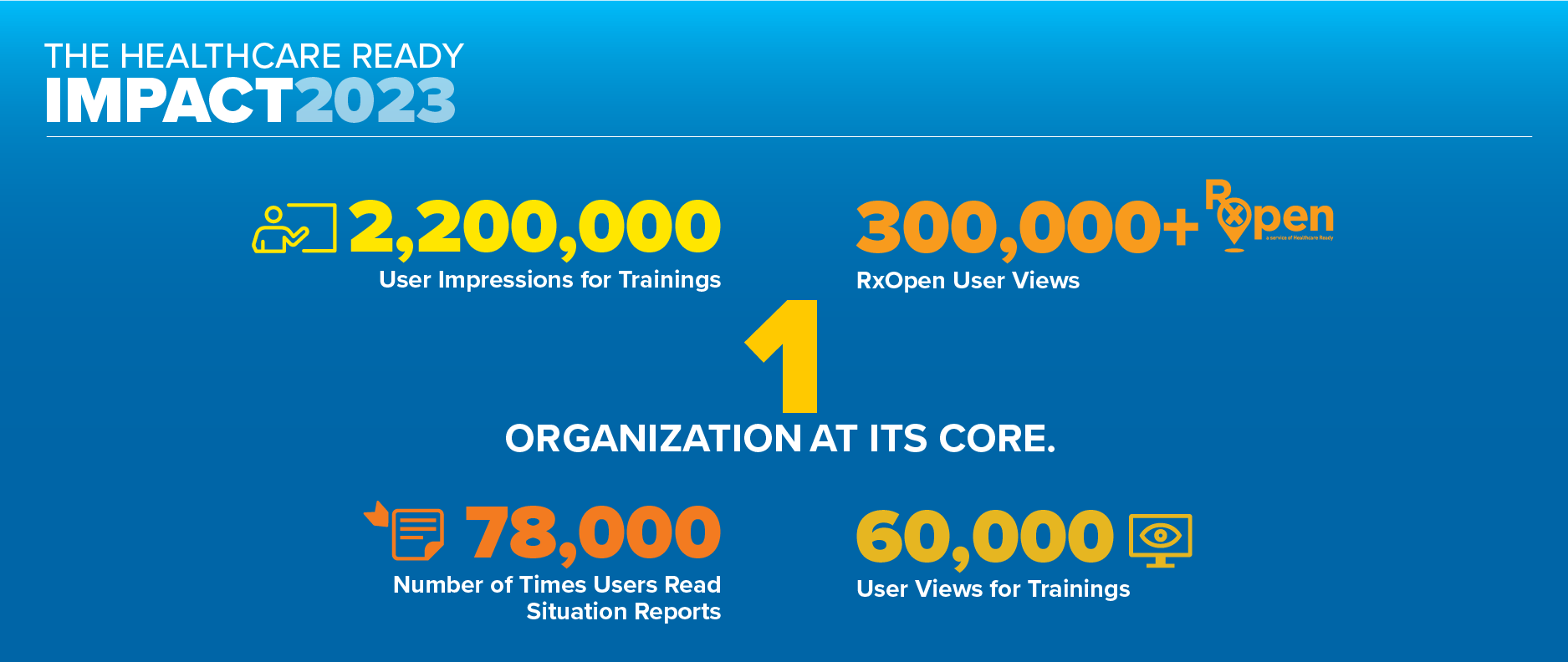
Letter from the Board Chair
Reviewing Healthcare Ready’s achievements in 2023, the numbers leave a truly impressive impact. Our free training videos for frontline providers and clinics received over 2 million impressions on YouTube alone. Resources like RxOpen.org and our interactive mapping tools have been used over 300,000 times by leaders across the country. Our situation reports, which deliver real-time information and assessments on emerging health and weather crises, were read over 78,000 times.
But our true success in 2023 is the story behind the numbers.
Healthcare Ready was formed because we recognized the need for a nimble, effective link between the many organizations that must work together to shepherd communities through disasters such as hurricanes, wildfires and disease outbreaks. This coordination cannot happen without clear, accurate and actionable information — information that can often be siloed in one agency or organization.
Healthcare Ready’s unique role in the public health sector is providing this critical informational link when it can create the most impact. Our deep expertise in healthcare, supply chains, supply management and disaster response means we can effectively gather and share the right information to the right people before disasters strike, helping to enhance planning and recovery efforts. Our expertise in cross-sector coordination also means that when we’re on the ground in the aftermath of a disaster, we have the right information to support local agencies with everything from patient care and provider well-being to accessing supply reserves from neighboring regions.
It is this ability to identify the right information and help our partners immediately turn it into meaningful action that sets Healthcare Ready apart and is one of the many reasons I am proud to serve as the board chair of this organization.
As we begin 2024, I hope you will join me in looking back on the past year and the many ways Healthcare Ready has scaled our impact through partnerships, research and resources — all of which are helping to turn information into action that drives greater resiliency and health equity in communities across the country.
Sincerely,

Phyllis Arthur, MBA
Board Chair, Healthcare Ready
Vice President, Infectious Diseases & Diagnostics Policy
at Biotechnology Innovation Organization (BIO)
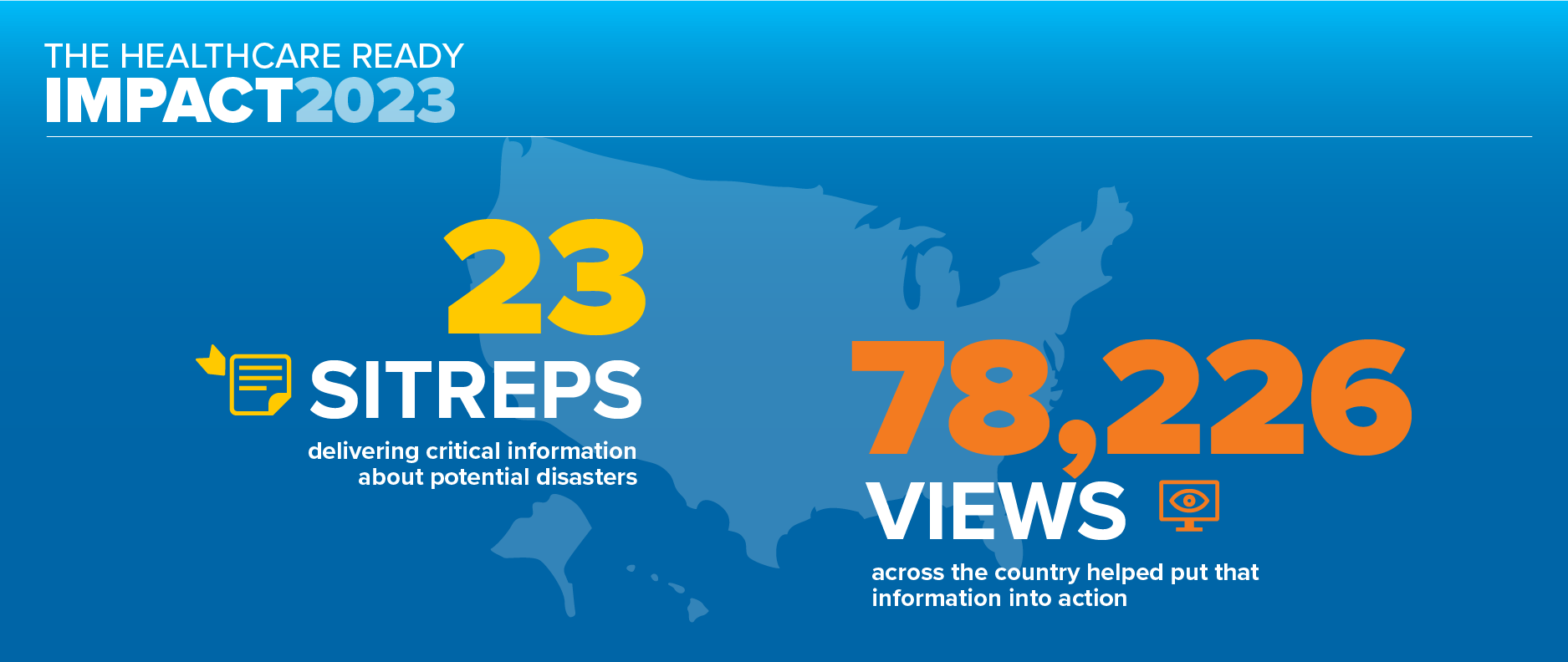
Partner Spotlight: HPHSCC
 In 2023, the Healthcare and Public Health (HPH) Sector Coordinating Council (SCC) and Healthcare Ready completed a five-year cooperative agreement to support the responsibilities of the Department of Health and Human Services, the designated Sector Risk Management Agency.
In 2023, the Healthcare and Public Health (HPH) Sector Coordinating Council (SCC) and Healthcare Ready completed a five-year cooperative agreement to support the responsibilities of the Department of Health and Human Services, the designated Sector Risk Management Agency.
Working together, the SCC and Healthcare Ready were able to adapt to meet the evolving needs that developed through the COVID-19 pandemic and other disruptions that affected the HPH Sector and Partnership, while still achieving all five cooperative agreement workstream goals established when the agreement began in 2018.
The goal of this final year centered around sustainability and ensuring the provision of coordination support for responses to public health emergencies. Key achievements include the organization of a Positioning, Navigation, and Timing (PNT) Working Group to develop a Vulnerability Test Plan for the HPH Sector to meet the requirements laid out by Executive Order 13905. A Sector Operational Handbook was also created, which documents standard operating procedures, best practices, and transition strategies needed to sustain the SCC and the Partnership following the end of the cooperative agreement.
“While the COVID-19 pandemic altered the direction of certain cooperative agreement activities, Healthcare Ready was able to maintain the yearly strategic priorities outlined for the HPH Partnership and provide the SCC with vital support and coordination.”
— Mark P. Jarrett, MD, MBA, MS | Senior Health Advisor | Northwell Health
Impact Profile: PAHPAIA
Healthcare Ready’s report to Congress on Protecting National Public Health and Health Care Infrastructure for the Next Disaster (PAHPAIA Report) emphasized the imperative of heightened interagency communication and improved coordination to bolster national preparedness and response capabilities for public health emergencies.
The report reflects on the impact of authorities and programs established through historically bipartisan-supported legislation, such as the 2006 Pandemic and All Hazards Preparedness Act (PAHPA), and highlights advancements facilitated by current preparedness programs, like the ASPR Hospital Preparedness Program (HPP)1 and CDC Public Health Emergency Preparedness (PHEP) cooperative agreements.
Results of this research included recommendations and strategies to (1) enhance coordination and communication, (2) strengthen accountability, and (3) advance equity. The report also underscores the critical need to sustain and increase federal investments in current and future preparedness and response programs to address critical gaps in communication and coordination that persist within existing frameworks guiding national response to public health emergencies.
The PAHPAIA Report serves as a roadmap and a call to action — offering clear, actionable strategies to ensure more equitable health outcomes in future public health crises.
1 A part of the ASPR Health Care Readiness Programs Portfolio.
Partner Spotlight: Cencora Impact Foundation
![]() The Cencora Impact Foundation (formerly the AmerisourceBergen Foundation) was instrumental in supporting our Mpox response in 2023. Their partnership was crucial in supporting the development of an interactive Poxvirus map that showed case counts, vaccination rates, and emergency declarations in real time. Additionally, we published multiple threat assessments and Sitreps to our network to keep providers and healthcare leaders up to date, as well as ensured supplies like vaccines and testing supplies were available in sufficient quantities.
The Cencora Impact Foundation (formerly the AmerisourceBergen Foundation) was instrumental in supporting our Mpox response in 2023. Their partnership was crucial in supporting the development of an interactive Poxvirus map that showed case counts, vaccination rates, and emergency declarations in real time. Additionally, we published multiple threat assessments and Sitreps to our network to keep providers and healthcare leaders up to date, as well as ensured supplies like vaccines and testing supplies were available in sufficient quantities.
“Our partnership with Healthcare Ready helped fuel a timely and adaptable response to the global MPox outbreak at a time when these outbreaks were not receiving much attention or focus in the U.S. Working together, we combined our expertise and strengths to develop real-time tools and provide the most up-to-date information to providers, clinics, and public health leaders across the country.”
— Susan Lorenz-Fisher, Senior Vice President, Global Sustainability, Social Impact & Real Estate, Cencora and Program Officer, Cencora Impact Foundation
Response Highlight: Mpox Response
In 2023, an outbreak of Mpox, an illness caused by the monkeypox virus, swept through the U.S. To support equitable access to treatment, Healthcare Ready worked to ensure supplies for vaccines, testing and treatment would be available in sufficient quantities to ensure the most vulnerable communities were appropriately prioritized.
Key to our response was our Poxvirus Map, an interactive tool that displayed information about vaccine quantity, and reported Mpox cases and Public Health Emergency declarations across the U.S. This map provided crucial real-time data to providers across the country — providing actionable information to support patient care and help mitigate the spread of the disease.
Partner Spotlight: Center for Disaster Philanthropy
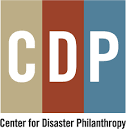 Disasters such as pandemics, hurricanes, floods, wildfires and more require expert response and coordination. Since 2010, the Center for Disaster Philanthropy (CDP) has been helping individuals, foundations and corporations increase the effectiveness of their philanthropic response to disasters and humanitarian crises. In partnership with CDP, Healthcare Ready worked throughout 2023 to advance preparedness and response efforts that help ensure equitable recovery.
Disasters such as pandemics, hurricanes, floods, wildfires and more require expert response and coordination. Since 2010, the Center for Disaster Philanthropy (CDP) has been helping individuals, foundations and corporations increase the effectiveness of their philanthropic response to disasters and humanitarian crises. In partnership with CDP, Healthcare Ready worked throughout 2023 to advance preparedness and response efforts that help ensure equitable recovery.
“Effective disaster response depends on understanding the flow of resources that fuel meaningful coordination and recovery. Healthcare Ready understands the needs and nuances of this work, and our partnership is helping strengthen learning and resources in this vital space.”
— Sally Ray, CDP Director of Domestic Fund
Impact Profile: Interactive Training Tools
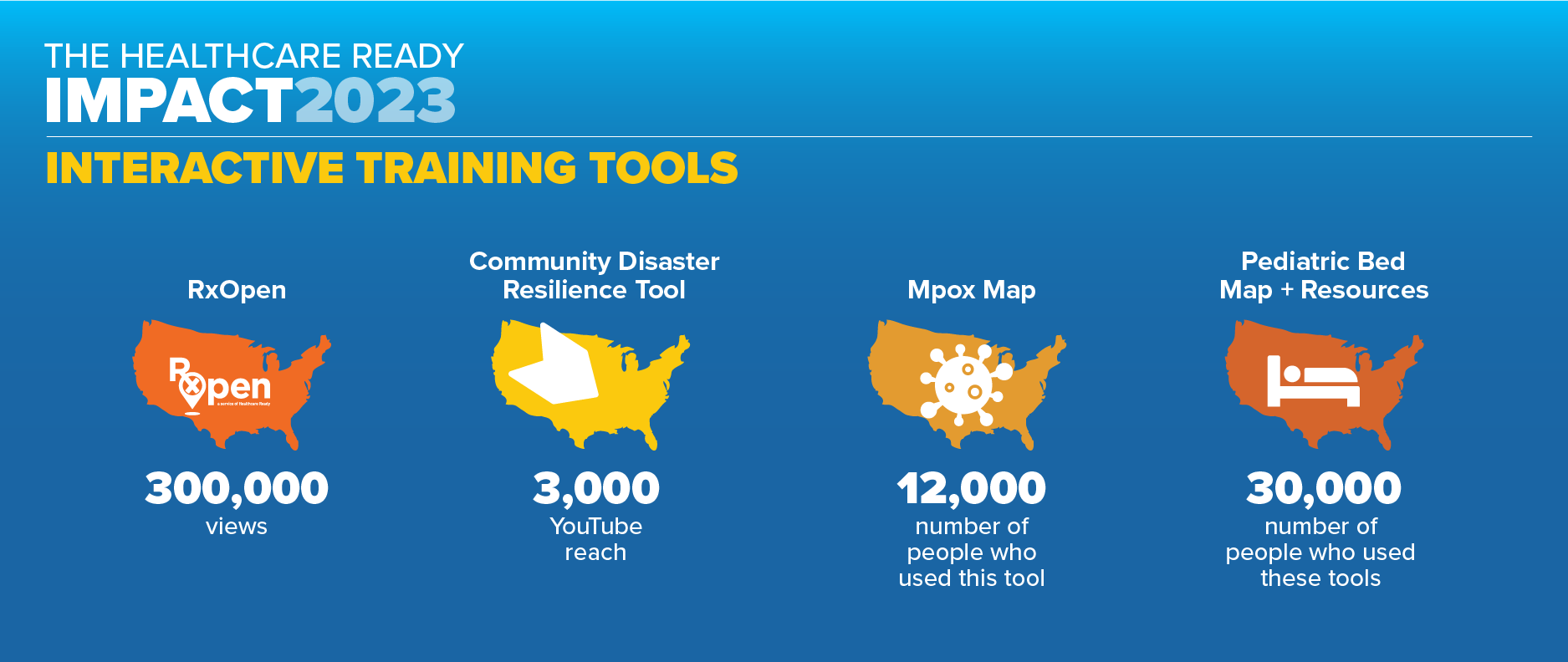
- Community Disaster Resilience Tool (CDRT) – an interactive map-based tool to help local officials, emergency managers, community leaders and researchers better understand the risks their communities face due to overlapping vulnerabilities and better prepare their responses before disaster strikes.
- RxOpen – a real-time informational map that displays the operating status of healthcare facilities in areas impacted by a disaster so users can quickly identify functioning clinics and hospitals and get patients the care they need quickly.
- Pediatric Hospital Bed Utilization – an interactive map developed in response to the RSV surge in the winter of 2023 that displays state-level data on available pediatric hospital beds to help effectively triage vulnerable patients and ensure widespread care access.
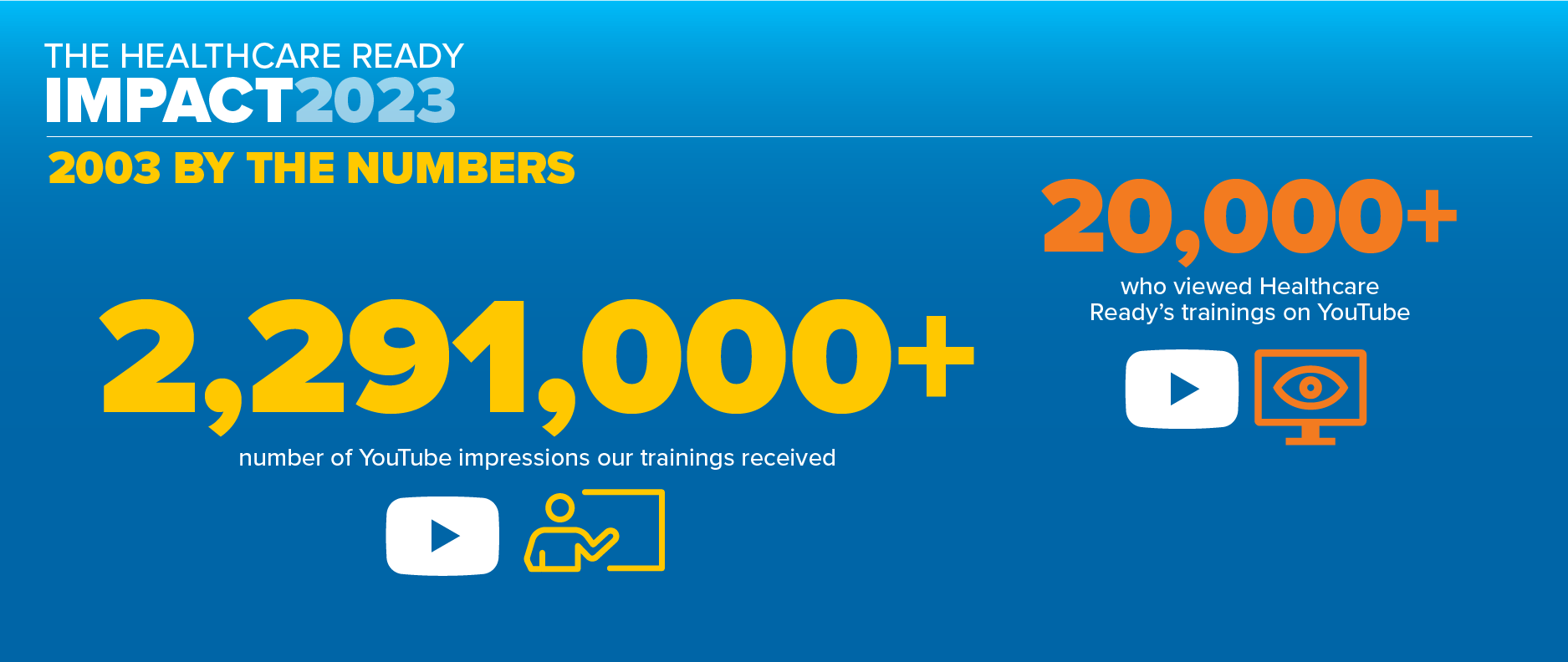
Partner Spotlight: The National Association of Free & Charitable Clinics
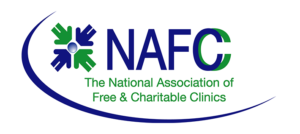 Free clinics, charitable clinics and federally qualified health centers are lifelines for millions of Americans. In 2022 alone, these clinics supported nearly 5.8 million patient visits — often providing comprehensive care regardless of patient means. The National Association of Free & Charitable Clinics provides quality, equitable and accessible healthcare to communities across the country.
Free clinics, charitable clinics and federally qualified health centers are lifelines for millions of Americans. In 2022 alone, these clinics supported nearly 5.8 million patient visits — often providing comprehensive care regardless of patient means. The National Association of Free & Charitable Clinics provides quality, equitable and accessible healthcare to communities across the country.
In partnership with The National Association of Free & Charitable Clinics, Healthcare Ready has helped enhance clinic and provider resiliency through free comprehensive trainings and resources. Our work funded by the Center for Disaster Philanthropy is also providing important support for community health centers.
“Healthcare Ready understands the pivotal role free and charitable clinics — and the providers who bring their skills to these centers — play in maintaining community health. Our partnership has helped bring high-quality trainings and resources to hundreds of clinics across the country.”
— Ariana Gordillo de Vivero, Director of Strategic Initiatives at NAFC
Impact Profile: ARCHER Trainings
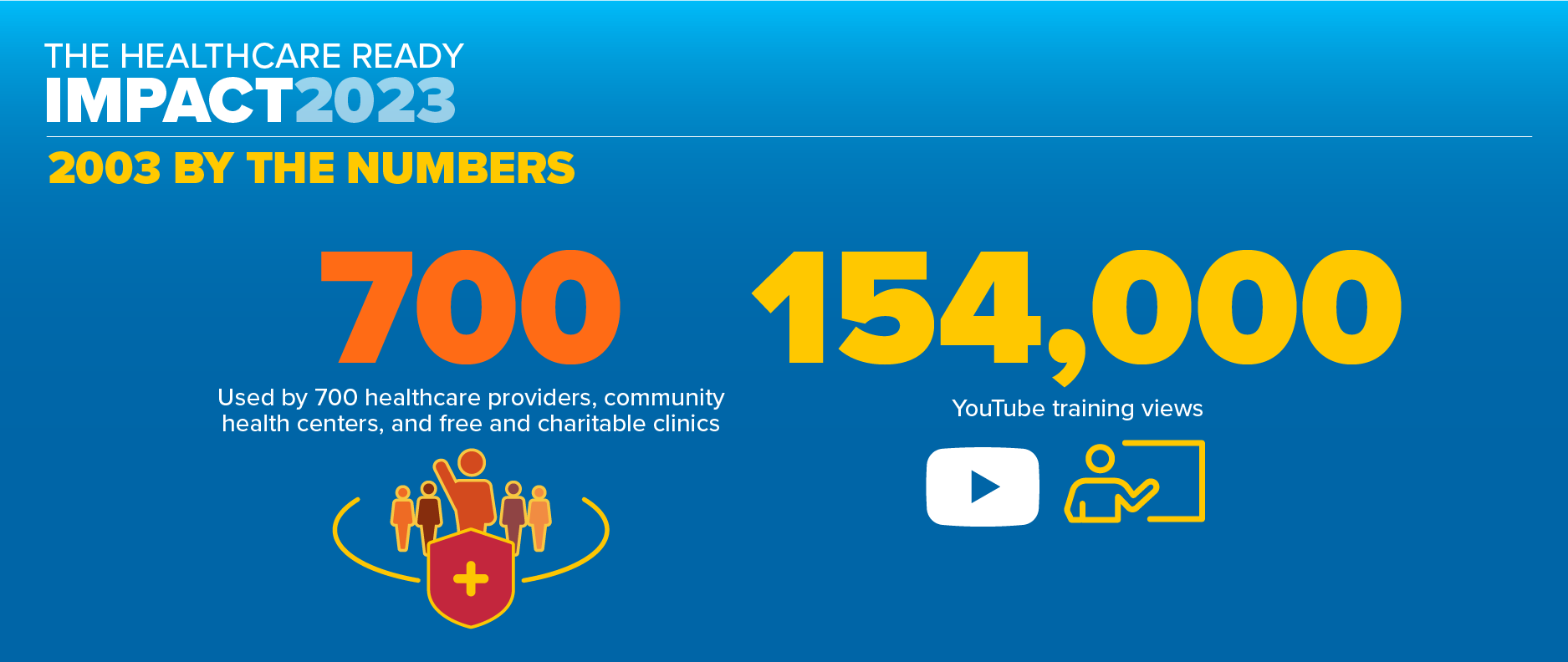
Developed by Healthcare Ready and the Centene Foundation, ARCHER provides detailed frameworks and strategies for:
- Emergency response planning & implementation
- Supporting frontline staff
- Cybersecurity preparedness
- Strengthening local partnerships for crisis response
In 2023, over 700 providers used ARCHER to support their preparedness work in clinics across the country — enhancing their team’s abilities to plan for and respond to emergencies.
Impact Profile: Sitrep Reporting & Analysis
Having accurate information before a crisis is crucial to effective disaster preparation, response and management. Healthcare Ready’s Situation Reports (Sitreps) deliver up-to-date information, data and recommendations directly to frontline providers, emergency managers, government officials and community leaders to help them stay informed. Ranging in topics from real-time reporting on disaster recovery efforts to alerts for potential supply line disruptions, Sitreps quickly and effectively get the right information to the right people so they can help shape more effective and equitable response efforts.
In a year of continuing public health concerns and extreme weather events, over 78,000 individuals from across the country viewed Healthcare Ready’s Sitreps. Importantly, some of our most-viewed Sitreps helped community leaders in healthcare, government, and emergency management assess the potential risks and impacts before crises arrived.
Our Sitrep tracking the potential UPS strike and detailing the potential impacts on the healthcare supply chain was viewed over 18,000 times. Similarly, our reporting on the North Carolina Pfizer plant was viewed over 15,000 times — providing crucial information on how plant production could be impacted by a tornado hit.
Sitreps are a critical way Healthcare Ready provides the right information to help communities more effectively prepare for and respond to disasters. To get Sitreps delivered to your inbox, sign up below.
Impact Profile: Membership
- Hurricane Ian Response
- Oncology Drug Shortage Response
- Penicillin Drug Shortage Response
- North Carolina Pfizer Plant Damage
- Hurricane Idalia Response
- Hurricane Lee Response
Looking Ahead
- Expanding our Rx Open program, which maps the status of pharmacies and other health facilities in disaster areas, to cover more states and territories.
- Developing and disseminating best practices and guidance for health preparedness and response in the context of climate change, cyberattacks, and emerging infectious diseases.
- Conducting research and analysis on the impact of COVID-19 on health equity, access, and affordability, and sharing our findings and recommendations with policymakers and stakeholders.
- Hosting webinars and workshops on various topics related to health resilience, such as supply chain management, mental health, telehealth, and community engagement.
- Participating in national and international forums and coalitions to advocate for the health needs and rights of disaster-affected populations, especially those facing marginalization and discrimination.

Tom Cotter, MPH
Executive Director of Healthcare Ready
